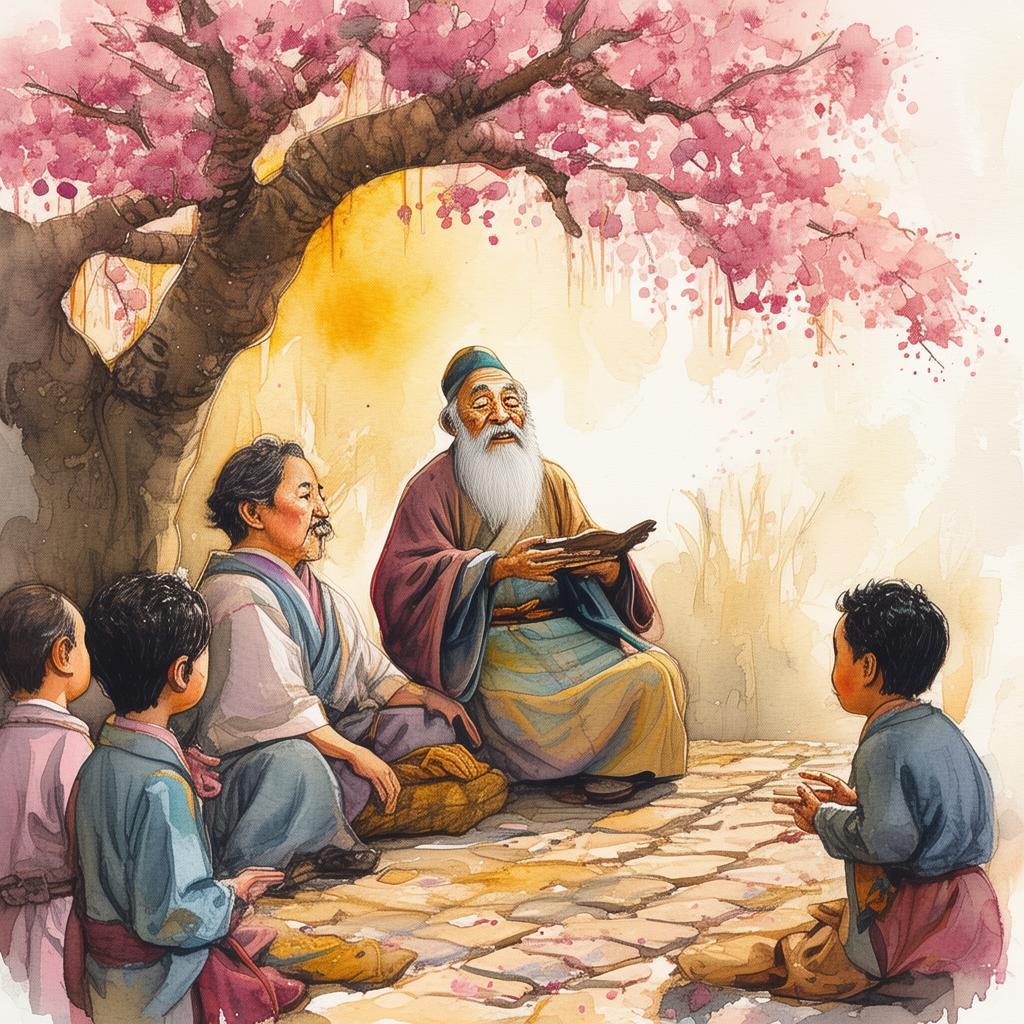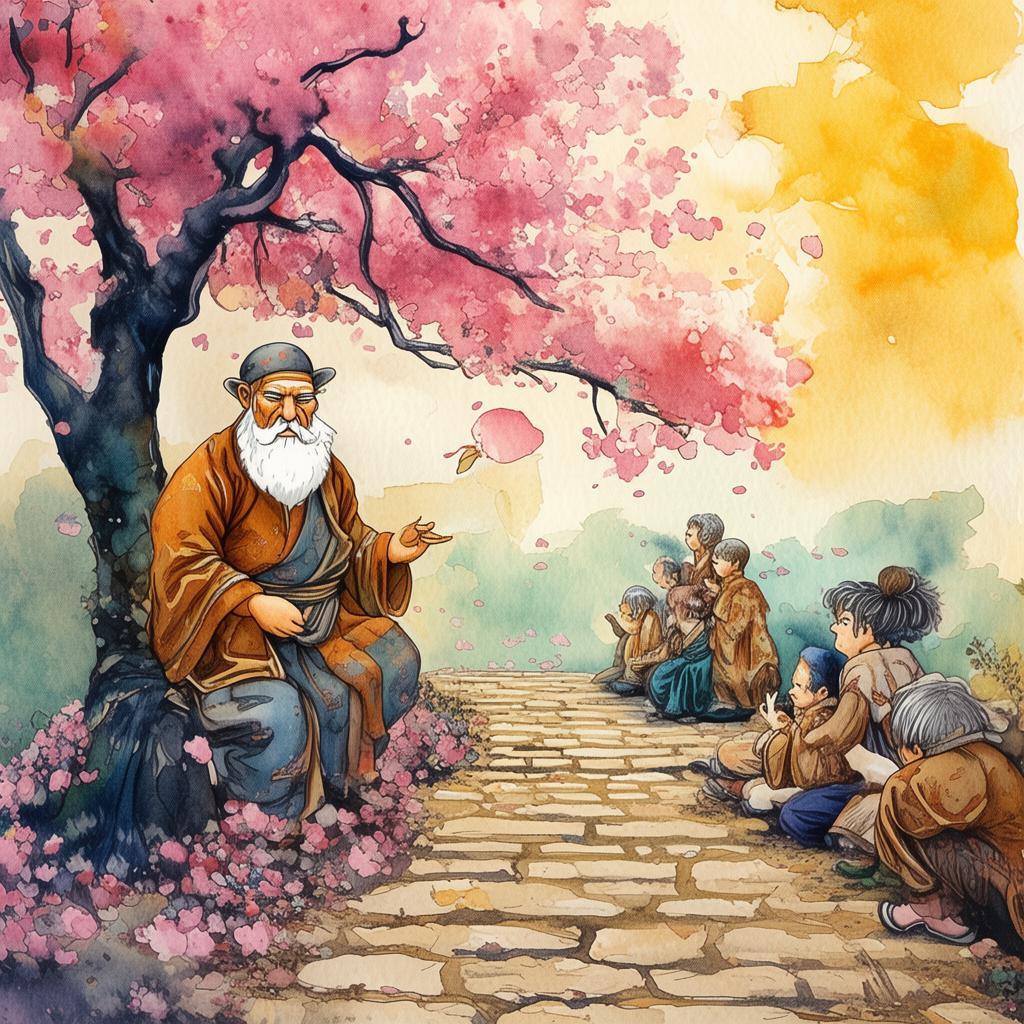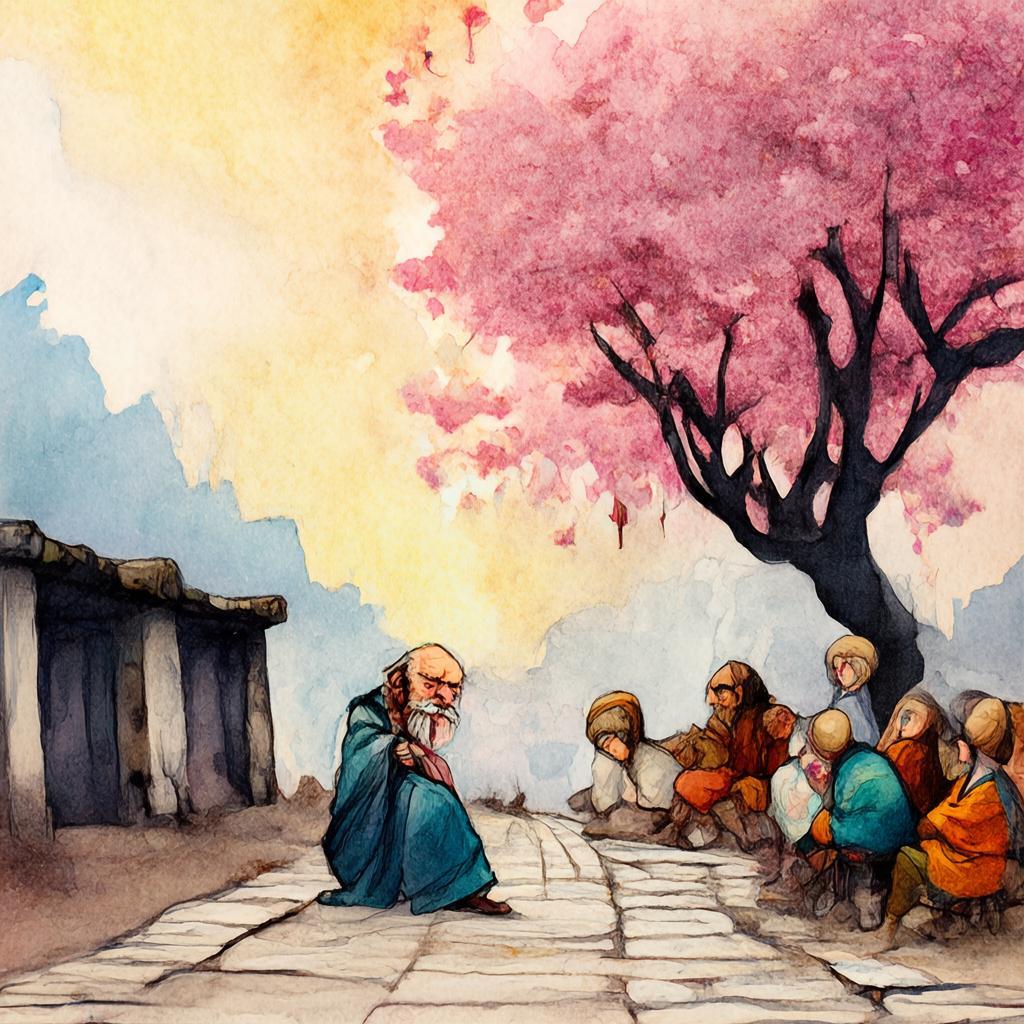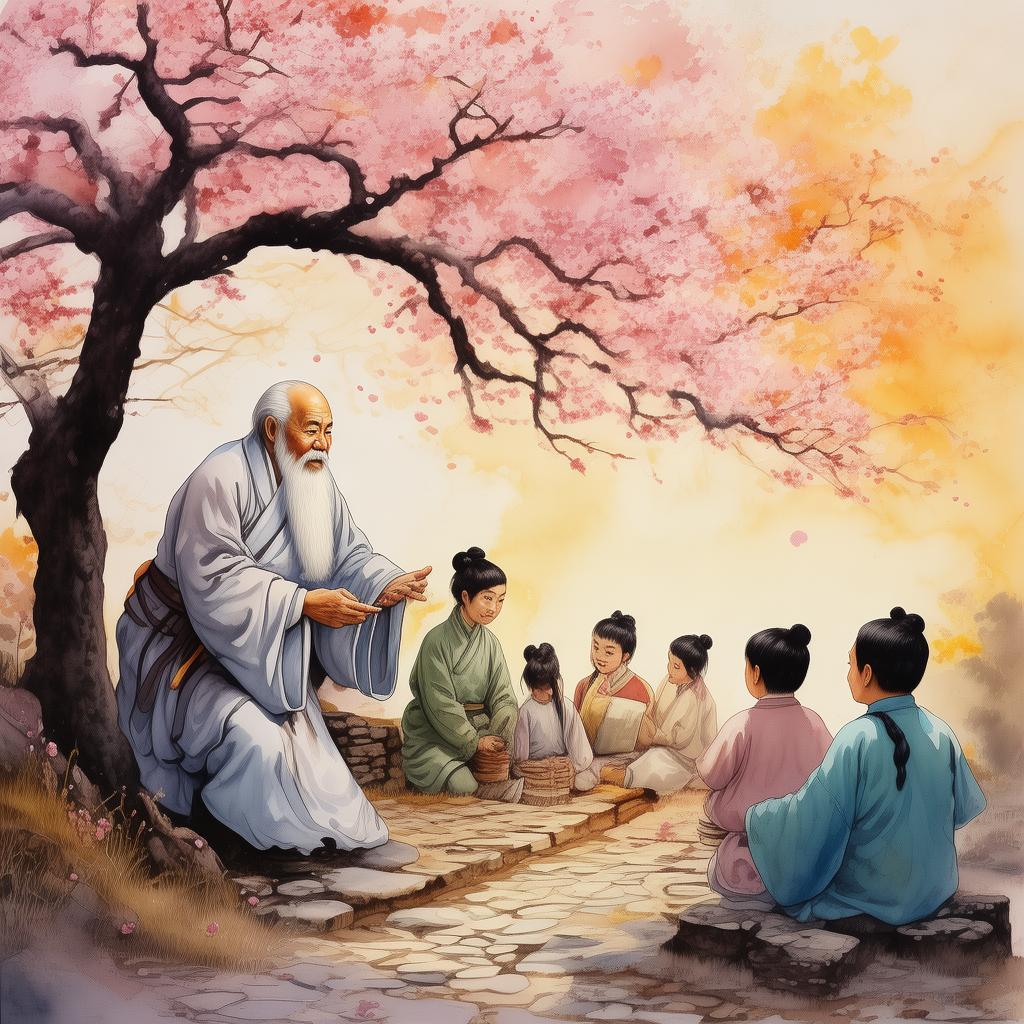Whispers of the Unyielding Pen
In the heart of ancient China, amidst the tumultuous reign of the Tang Dynasty, there lived a bard named Li Bai, known to many as the Unbowed Bard. His name was synonymous with poetic prowess, and his verses were whispered in the hushed corners of the land. Yet, beneath the surface of his serene verses, lay a story of resilience and the indomitable spirit of the human heart.
The Unbowed Bard was a man of many contradictions. On one hand, he was a wanderer, a soul unmoored by the constraints of the world, seeking inspiration in the vastness of nature and the company of like-minded spirits. On the other, he was a man of the people, his heart heavy with the suffering of his fellow citizens under the harsh rule of the emperor.
The story begins with Li Bai's encounter with a young girl named Mei, whose family had been forced into poverty by the emperor's heavy taxation. Mei's father, a once-proud farmer, now toiled under the yoke of debt, his spirit broken by the relentless toll of the state. Li Bai, moved by Mei's plight, penned a poem that resonated with the suffering of the common folk, "The Fields of Sorrow."
The poem spread like wildfire, its words echoing the pain of the people. The emperor, a man known for his ruthless pursuit of power, was not pleased. He ordered Li Bai to cease his writing and demanded that he compose a poem in praise of his rule. Li Bai, true to his nature, refused. "My pen is not a tool for flattery," he declared, "but a vessel for truth."
The conflict between the bard and the emperor escalated. Li Bai was imprisoned, his verses banned, and his freedom curtailed. Yet, even in the face of such adversity, he did not yield. His spirit remained unbroken, and his resolve to speak truth to power never wavered.

In the depths of his cell, Li Bai found solace in the rhythm of his own heartbeat, the echo of his own thoughts. He began to write in secret, his verses a testament to the resilience of the human spirit. One of his most poignant works, "The Unbowed Pen," spoke of his unwavering commitment to truth and justice.
As the years passed, the empire crumbled under the weight of its own corruption. The people rose up, their voices united in rebellion. The Unbowed Bard, now a symbol of hope and resistance, emerged from his cell to lead the charge. His verses, once banned, now became the rallying cry of the revolution.
The battle was fierce, and the cost was high. Yet, in the end, the people triumphed. The emperor was overthrown, and a new era of freedom and prosperity began. The Unbowed Bard, now a revered figure, was hailed as a hero. His legacy was not just in his verses, but in the very essence of his being—the indomitable spirit that refused to be bowed.
The story of the Unbowed Bard is a tale of poetic calm amidst the storm of conflict. It is a story that speaks to the enduring power of truth, the unyielding spirit of the human heart, and the transformative power of art. In the end, it is a story that teaches us that even in the darkest of times, there is always hope, and that the pen, though small, can wield the might of a thousand swords.
As the Unbowed Bard lay on his deathbed, surrounded by the people he had so passionately served, he whispered his final words, "Let my pen be your guide, and let the truth be your light." And with that, he passed away, his legacy etched into the annals of history, a testament to the enduring power of poetry and the indomitable spirit of the Unbowed Bard.
✨ Original Statement ✨
All articles published on this website (including but not limited to text, images, videos, and other content) are original or authorized for reposting and are protected by relevant laws. Without the explicit written permission of this website, no individual or organization may copy, modify, repost, or use the content for commercial purposes.
If you need to quote or cooperate, please contact this site for authorization. We reserve the right to pursue legal responsibility for any unauthorized use.
Hereby declared.









